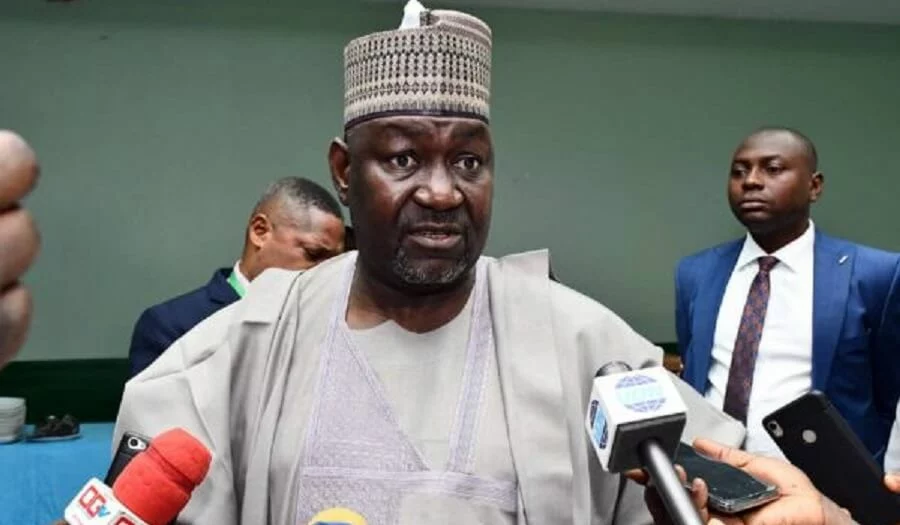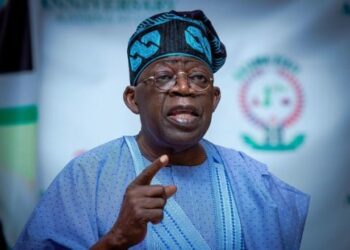Nigerians faulted claims of improved services by Electricity Distribution Companies (DisCos), following recent discovery of minor tariff adjustment.
President, Nigeria Consumer Protection Network (CPN), Kunle Kola Olubiyo, has consistently argued that performance of the power sector since the 2013 partial privatisation exercise has remained abysmal with tariff consistently going up.
But despite the outcry, operators in the nation’s electricity distribution sector on their own have asked that full market operations be allowed to play as current tariff can no longer guarantee service performance and encourage new investments in the distribution chain.
The DisCos are primarily complaining of Aggregate Technical, Commercial and Collection (ATC&C) Losses which has compounded their challenges in meeting their payment obligations to the Generation Companies, GenCos.
Our Correspondent reports that DisCos ATC&C losses in 2022/Q2 was 44.60 per cent comprising technical and commercial loss (21.83%) and collection loss (29.13%).
The Nigeria Electricity Regulatory Commission (NERC), has emphasised the imperative for DisCos to employ technologies and operational procedures to increase both billing and collection performances, in order to forestall long term financial challenges.
These could include holistic energy accounting procedures, customer and infrastructure metering, among others.
Although, the ATC&C loss decreased by 3.28 per cent compared to 2022/Q1 (47.88%), however, all DisCos did not meet their allowed ATC&C loss targets as specified in the Multi Year Tariff Order, MYTO, indicating that all DisCos did not meet their loss reduction targets, and were therefore unable to earn the revenue requirement upon which their approved tariffs for the period were set.
The NERC observed that persistent inability in meeting loss reduction targets could prevent DisCos from meeting their upstream market obligations and adversely affect their long-term financial positions.
The NERC, in 2020, issued guidelines following a revised electricity tariffs to be paid by some electricity consumers.
Under the guidelines, NERC said that, “the federal government under the Power Sector Recovery Plan (PSRP) financial plan has committed to funding the revenue gap arising from the difference between the cost reflective tariffs determined by the commission and the actual end-user tariff during the transition to the cost-reflective tariff.”
In documents containing the official communication between NERC and the Discos, which detailed the reviewed rules, the regulator said any rejection of power by either the Discos or under-supply by the Transmission Company of Nigeria, TCN would now attract a “capacity charge.”
TCN has always complained that the country’s power supply situation is worsening because of the rejection of electricity allocation by Discos, noting that the problem persisted because the distributors can drop load and increase it at will without being penalised.
“Where it is established that the TCN is unable to deliver Discos’ load allocation, TCN shall be liable to pay for associated capacity charge. Where Discos fail to take its entire load allocation due to constraints in its network, the Disco shall be liable to pay capacity charge as allocated in its vesting contracts,” NERC stated.
The new order instructed the Discos on the modalities for billing customers who fall under different classifications with the commencement of the new tariffs, saying that Nigerians who receive less than 12-hour supply of electricity will not be affected in the latest increase until service improves.
“This order shall take effect from September 1, 2020 and shall cease to have an effect on the issuance of a new minor review order or an extraordinary tariff review order by the commission,” NERC stated.
It said the commission took the decision after it reviewed the application filed by the Discos, taking into consideration the outcome of the public consultations held in February and March and thereafter approved the new tariff regime that will cover from September to June 2025.
“The order reflects the impact of changes in macroeconomic parameters and revenue requirements and a revised tariff design that aligns rates paid by customers with the quality of services as measured by the average availability of power over a month period.
“Pursuant to the objective of incentivising a continuous improvement of service for all customers, there shall be no tariff reviews for customers experiencing an average power supply availability of less than 12 hours per day over a period of one month.
“Unmetered customers within service bands A,B and C thus benefiting from a supply availability in excess of an average of 12 hours per day over a period of one month as affected by this tariff order shall be protected by the provision of order on capping of estimated bills in the NESI and federal government intervention on accelerated metering of all customers.
“The commission orders that you shall continue to maintain the lifeline tariff of N4 per kW for all customers consuming less than 50kw per hour of energy per month as a safeguard for the less privileged members of the society,” NERC added.
On the objectives of the order, NERC noted that it seeks to ensure that prices are fair to customers and sufficient to fully recover the efficient cost of operation, including a reasonable return on capital invested in business by the Discos.
It said the new guidelines would provide a path to a transition to full service-based cost-reflective tariffs by July 2021 and re-classify as well as disaggregate customer clusters on the basis of commitment to quality of service.
Upon evaluation, NERC said it considered and approved five tariff service bands representing relative quality of service experience.
It told the power distributors that it arrived at the new rates after considering the country’s rate of inflation for July 2020 as obtained from the National Bureau of Statistics (NBS), which was 12.82 per cent.
NERC further pegged the applicable exchange rate of N383.80 and gas price of $2.50/mmbtu and gas transportation cost of $.80 mmbtu.
However, it said there would be a “tariff freeze” for customers in bands D, E, directing that they shall be charged tariffs obtainable prior to the take-off of the new rates pending when power improves.
“Following consultations on directions on tariff policy, the commission hereby approves a deferment of the applicable tariffs for customers in service band D and E (less than 12 hours per day over a month),” it added.
NERC explained that where there is a failure to deliver a committed service level over the evaluated period of 60 days, the rates payable by customers should be retroactively adjusted in line with quality of service delivered over the same period of time.
But despite NERC’s consideration for tariff adjustments Electricity workers under the aegis of the National Union of Electricity Employees (NUEE) have condemned the recent hike in tariffs, saying that it will not improve power supply.
Also, stakeholders have condemned the current industry performance despite disbursing about N1.3 trillion to the power sector in the last five years, by the Central Bank of Nigeria (CBN) intervention.
However, the experts stated that the sector would have collapsed without loans and interventions by the apex bank in the last few years, commending the bank for the initiative.
In the last couple of years, the CBN had launched the N300 billion Power and Aviation Intervention Fund (PAIF), the Nigerian Electricity Market Stabilisation Facility (NEMSF) amounting to N213 billion and the N140 billion Solar Connection Intervention Facility.
In addition, it has paid over N600 billion tariff shortfall intervention to ensure stability in the sector as well as a recent N120 billion interventions designed for mass metering.
“We have disbursed over N1.3 trillion in the last five years to support the sector through the generators or Discos or to acquire equipment, buy meters or to improve what is being paid to electricity generating companies so that they can continue to pay for their gas,’’ CBN governor, Godwin Emefiele, said.
But speaking on the recent tariff adjustment, managing director of Eko Electricity Distribution Company, Eko DisCo, Tinuade Sanda, said the exercise being carried out by DisCos are in tandem with regulatory demands.
According to Sanda, Eko DisCo, carried out minor adjustment only for customers in ‘Band A and B’ who receive minimum of 20- and 16-hours daily supply of electricity in accordance with regulatory provisions.
The NERC said some of the indices considered for the tariff increase include gas price, inflation, exchange rate, U.S. inflation rate, and available generation capacity. It added that these indices shall be reviewed every six months to update the tariffs with changes in the indices as applicable in line with the multi-year tariff order (MYTO).
Sanda, clarified that the minor adjustment which the regulation allows however, did not happen across the network strata.
Also, speaking with our correspondent in Lagos, Ms. Chantelle Abdul the chief executive officer, CEO, of MOJEC International said, losses incurred by DisCos would not enable them to procure meters for customers.
Abdul, justified the adjustment saying that current electricity tariff in Nigeria is the lowest in the world and even Nigeria’s next-door neighbour, Ghana pays higher in Nigeria.
She called for subsidy removal as the money spent by government is choking the national economy.
Only recently, Sanusi Garba, NERC chairman, said the commission played a role in ensuring that tariff rates were regulated.
“The role of the Commission is to make a determination of the rates that consumers should pay. So, we strike a balance between consumers and investors,” Garba said.
He said that the electricity subsidy had been reduced in the past four to five years over its unsustainability regarding investors’ return on investments.
“Now subsidy is a policy issue determined by the government. The government will decide that the rates calculated or agreed by the regulator may at this time not be passed on to consumers. It has happened many times.
“In the past four, five years the level of subsidy has gradually been reduced, because you cannot run the electricity market on life support and say that investors cannot get their return on investment until government steps in to provide the required funding.
“So that policy decision (stopping electricity subsidy) is as announced by the Minister of Finance. The subsidies have been, at one time as high as N600 billion a year, and gradually coming down to about N30 billion or so this year,”he said.
The NERC chairman has also clarified that tariff adjustment is allowed following underlying economic considerations.
He said that it is very clear on NERCs website that every six months there will adjustment of rates to take care of the foreign exchange component of cost and also inflation.
Garba said the tariff adjustment was straightforward, emphasising that the distribution companies were meant to inform their customers of the changes.





